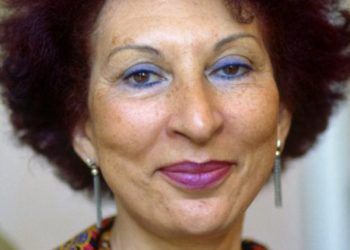Born in 1951 in Ahwaz, Iran, Hamid Dabashi was educated in Iran and received his PhD in cultural sociology and Islamic studies from the University of Pennsylvania. In 1984, he was awarded a postdoctoral fellowship at Harvard University. He wrote his dissertation on Max Weber’s theory of charismatic authority with Philip Rieff (1922-2006), the most eminent Freudian cultural critic of the time. Hamid Dabashi has taught at many North American, European, Arab and Iranian universities. He is currently one of the oldest and most prestigious professorial faculty members in the Department of Iranian Studies and Comparative Literature at Columbia University. He is a founding member of the Institute for Cooperative Literature and Society and a founding member of the Center for Palestine Studies at Columbia University.
Hamid Dabashi has written twenty-five books, edited four books, and authored chapters in many others. He has also written hundreds of articles and book reviews in respected academic journals on Iranian studies, medieval Islam and modern Islam, world cinema, comparative literature and philosophy of art. Dabashi has also written numerous articles and lectured on Islamism, feminism, globalized empire and ideologies of resistance. Internationally renowned as a cultural critic, Dabashi’s works have been translated into numerous languages, including Japanese, German, French, Spanish, Italian, Russian, Hebrew, Danish, Arabic, Korean, Portuguese, Polish, Turkish, Urdu and Catalan (Hamid Dabashi Doha Institute -, n.d.). Dabashi edited the series Literatures and Cultures of the Islamic World. This series provides scholars and students of Islamic literary and cultural studies with a critical perspective and body of knowledge on the literary and cultural production of the Islamic world through a contemporary theoretical and hermeneutical approach that breaks with prejudices and outdated perspectives.
One of his major works, Iran: A People Interrupted, he analyzed Iran’s history over the last two centuries in the light of cultural trends and political developments up to the collapse of the reform movements and the presidency of Mamoud Ahmadinejad. In this book, Dabashi argued that Iran should be seen as the site of an ongoing contest between two contrasting visions of modernity, one colonial and the other anti-colonial. In his 1997 book Theology of Discontent, he examined how Islamic ideologies contributed to the Islamic revolution in Iran and the subsequent republicanism, aiming to analyze the real causes of change. By analyzing the views of eight different thinkers, this work reveals how these views have influenced Iran’s belief system. It also examines how Iranian identity was formed in opposition to Western ideas and rereads Iran’s relations with the West. Hamid Dabashi has also worked for many years on issues of power and authority.
In his 1989 book, Authority in Islam, he began by analyzing the concept of authority in Islam by examining the characteristics of the concept of authority in pre-Islamic Arab society and traced the changing and developing aspects of the concept of authority with Islam. In this context, he analyzed how this concept is handled in Sunni, Shiite and Karaji branches of Islam separately. Published in 2009, Post-Orientalism: Knowledge and Power in Time of Terror, published in 2009, he again focuses on the issue of authority and power and, following Edward Said, examines the post-orientalist reflections of these concepts in the light of the post-September 11 political reality. Dabashi has written many other works on Orientalism, Iranian culture and history, Islamic studies, cinema, and literature. Dabashi is the founder of Dreams of a Nation, a Palestinian film project dedicated to preserving Palestinian cinema. He was a consultant for the feature film Kingdom of Heaven (Hamid Dabashi, 2018).
References
Hamid Dabashi. (2018, September 28). Columbia Middle East South Asian and African Studies MESAAS. https://mesaas.columbia.edu/faculty-directory/hamid-dabashi/
Doha Institute. (n.d.). Hamid Dabashi. Retrieved from March 3 2022, https://www.dohainstitute.edu.qa/EN/Academics/SOSH/Programs/ComparativeLiterature/Pages/Faculty/Hamid-Dabashi.aspx













































